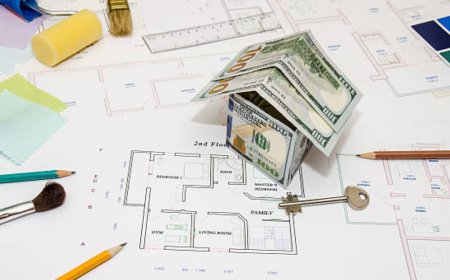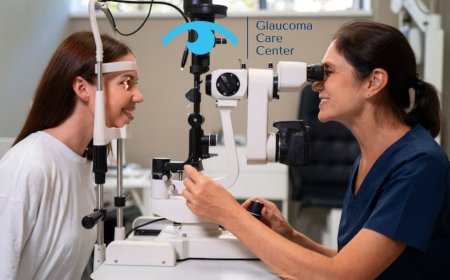Why Most People Handle Dental Emergencies the Wrong Way
Most people mishandle dental emergencies, risking pain and tooth loss. Learn the right steps and how emergency dentists can help.

Dental emergencies often catch us off guard, leaving many unsure how to respond. Unfortunately, a large number of people handle these situations incorrectly, sometimes making the problem worse. Knowing the right steps to take can prevent unnecessary pain and avoid costly treatments. This post delves into common mistakes made during dental emergencies and highlights effective approaches to manage them calmly and correctly. By understanding proper care, you can protect your teeth and health when it matters most.
Common Mistakes in Handling Dental Emergencies
Many people panic during dental emergencies, leading to decisions that may worsen the situation. Whether its a severe toothache, a knocked-out tooth, or a broken crown, wrong responses can delay treatment and complicate recovery. An emergency dentist in Reading often sees cases where simple missteps have turned manageable problems into urgent, costly interventions.
One common error is ignoring the problem or hoping it will heal on its own. For example, dental pain often signals infection or damage that will not improve without professional care. Similarly, trying home remedies without guidance can cause further harm.
Why Do People Handle Dental Emergencies Poorly?
Several factors contribute to mishandling dental emergencies:
-
Fear and anxiety: Dental fear often causes people to avoid seeking help.
-
Lack of knowledge: Many are unsure what counts as an emergency or how to manage
-
Misconceptions: Beliefs that painkillers or home remedies suffice can lead to delays.
-
Access issues: Difficulty securing immediate appointments discourages timely care.
The Right Way to Manage Dental Emergencies
Understanding the correct response can make all the difference. Heres how to handle common emergencies effectively.
Severe Toothache
If you experience intense, persistent pain, contact an emergency dentist in Reading immediately. Avoid placing aspirin or other painkillers directly on the gums, as this can cause burns. Instead, rinse your mouth gently and use over-the-counter pain relief as directed until professional help is available.
Knocked-Out Tooth
If a tooth is knocked out, time is critical. Handle the tooth by the crown, rinse it gently without scrubbing, and try to place it back in the socket if possible. If not, store it in milk or saliva and seek emergency care right away. Immediate action increases the chances of saving the tooth.
Broken or Chipped Teeth
Save any fragments and rinse your mouth with warm water. Applying a cold compress can reduce swelling. Avoid chewing on the affected side and see a dentist promptly for evaluation and repair.
Lost Crown or Filling
While waiting to see your dentist, avoid chewing on that side and use dental cement (available at pharmacies) as a temporary fix if needed. Prompt treatment prevents sensitivity and further damage.
The Role of Emergency Dentist in Reading
An emergency dentist in Reading is trained to handle urgent dental issues with speed and care. They can provide pain relief, infection control, and treatment plans that prevent complications. For instance, they might perform root canal therapy to save an infected tooth or stabilise a fractured tooth.
Emergency dentists also advise on home care and future prevention, reducing the chance of repeated emergencies. Having access to such professional support is key in managing crises effectively.
When Dental Emergencies Lead to More Complex Solutions: Dental Implant Reading
Ignoring dental emergencies can result in tooth loss, sometimes requiring a dental implant Reading as a replacement. Dental implants are effective long-term solutions but are more invasive and costly than early interventions to save natural teeth.
Prompt treatment of injuries and infections can often prevent the need for implants, highlighting the importance of correct emergency handling.
How to Prevent Dental Emergencies
Prevention is always better than cure. Here are practical ways to reduce the risk of dental emergencies:
-
Maintain excellent oral hygiene with regular brushing and flossing.
-
Attend routine dental check-ups for early problem detection.
-
Wear protective gear during sports or risky activities.
-
Avoid chewing on hard objects like ice or pens.
-
Address minor dental concerns before they escalate.
These steps protect your teeth and reduce the likelihood of emergency situations.
Common Myths About Dental Emergencies
Lets clear up some misconceptions:
-
I can wait a few days to see if the pain goes away. Pain often indicates serious issues; waiting can worsen conditions.
-
Only injuries from accidents are emergencies. Infections and sudden toothaches also require urgent care.
-
I should remove a broken tooth piece myself. Handling tooth fragments improperly can cause damage; see a dentist promptly.
What to Expect at Your Emergency Dental Appointment
Visiting an emergency dentist in Reading typically involves:
-
A thorough examination and diagnosis using tools like x-rays.
-
Immediate pain management with medication or local anaesthetic.
-
Treatment of the underlying problem, whether its infection, fracture, or trauma.
-
Advice on aftercare and follow-up visits.
How Dental Implant Reading Fits Into Long-Term Care
In cases where teeth cannot be saved, dental implants offer a durable replacement option. These artificial roots support crowns that look and function like natural teeth.
While implants are effective, they require good oral health and sufficient jawbone structure. Emergency dentists often coordinate with implant specialists to plan the best outcome for patients who have lost teeth due to untreated emergencies.
Tips for Staying Calm During a Dental Emergency
Anxiety can make dental emergencies feel overwhelming. Here are tips to stay calm:
-
Take deep, slow breaths to reduce stress.
-
Avoid panicking, remember that emergency dentists are prepared to help.
-
Have your emergency dentists contact details handy for quick access.
-
Focus on first aid steps while waiting for professional care.
Conclusion
Many people handle dental emergencies incorrectly, which can lead to unnecessary pain, infections, and tooth loss. Understanding the right steps, such as contacting an emergency dentist in Reading promptly and avoiding harmful home remedies, is vital. When teeth are lost due to ignored emergencies, dental implant Reading offers solutions, but prevention and timely care remain the best approach. EDR encourages everyone to take dental emergencies seriously to maintain long-term oral health and peace of mind






































